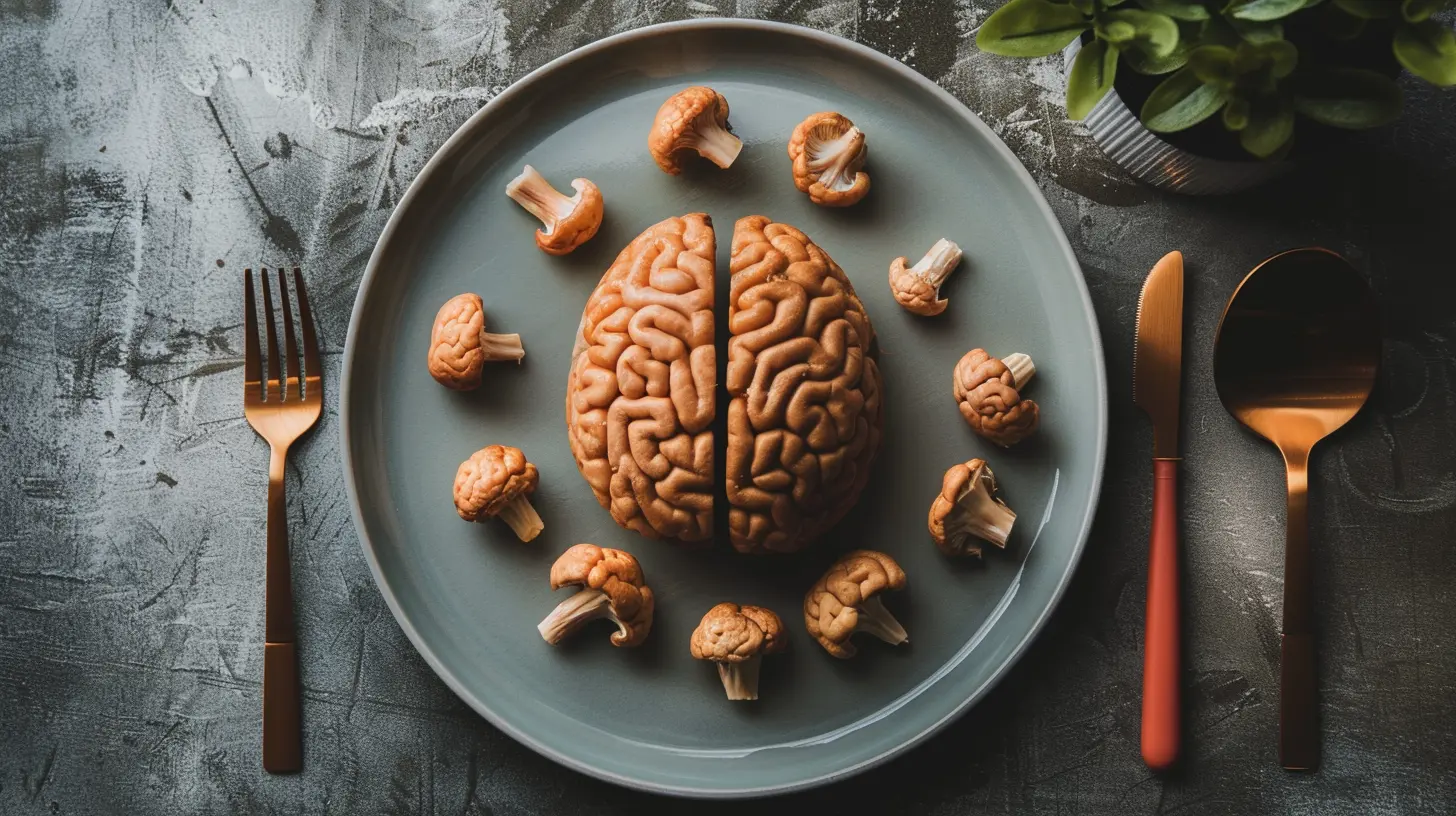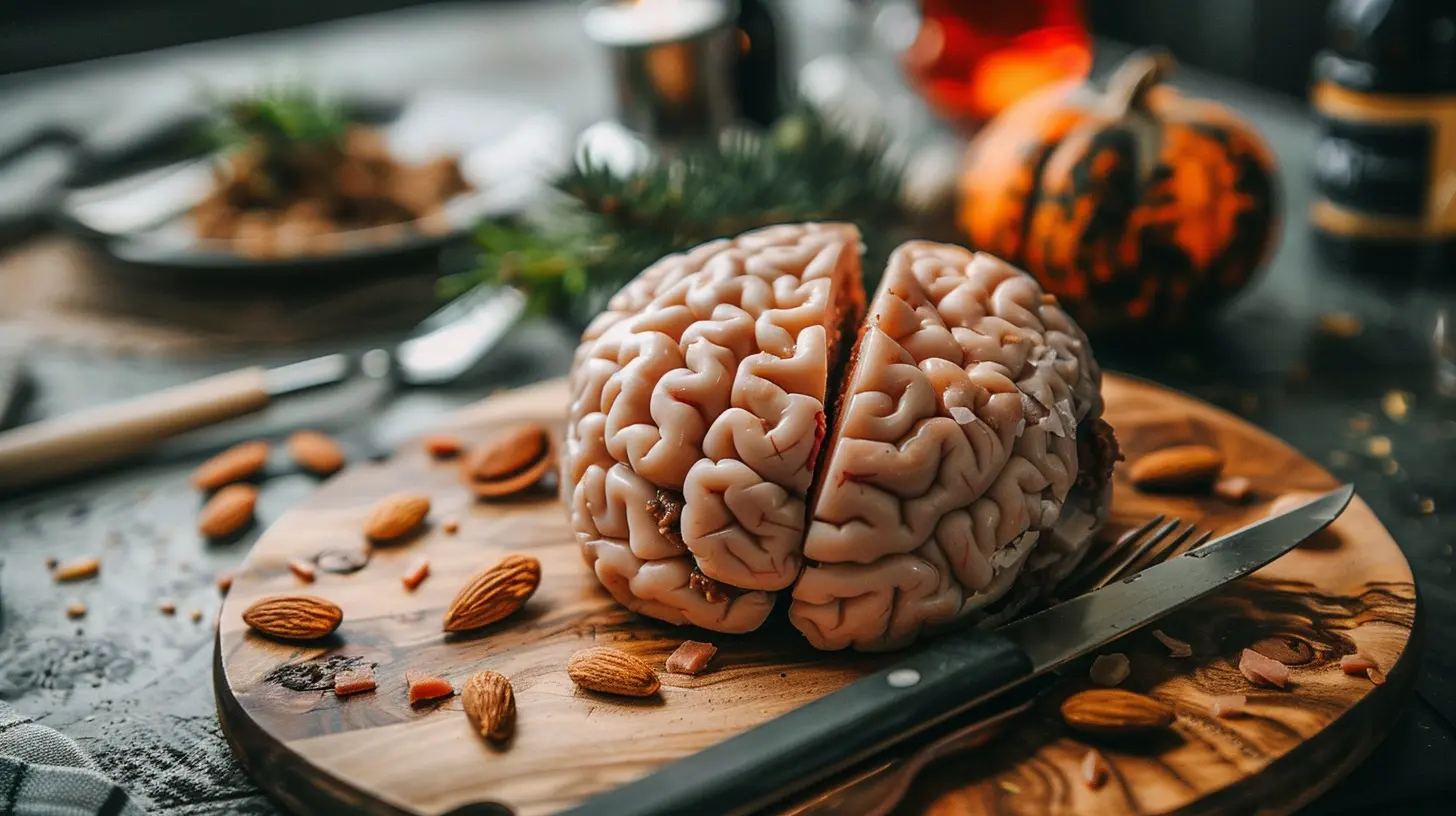The Connection Between Intermittent Fasting and Brain Health
19 May 2025
Intermittent fasting has become the holy grail of health hacks. From weight management to longevity, this ancient practice is making waves in the wellness world. But did you know that intermittent fasting might also supercharge your brain? Yep, that gray matter between your ears loves a good fast just as much as your metabolism does!
If you’ve ever wondered how skipping meals (intentionally) could actually benefit your brain, you're in for a treat. Let’s dive into the weird and wonderful connection between intermittent fasting and brain health! 
🧠 What is Intermittent Fasting?
Before we get into the brainy stuff, let’s clarify what intermittent fasting (IF) actually is.Simply put, intermittent fasting is when you cycle between periods of eating and not eating. Unlike traditional diets that focus on what you eat, IF is all about when you eat. It’s more about timing than calorie counting (which is why so many people love it!). Some common IF methods include:
- 16/8 Method – Fast for 16 hours, eat within an 8-hour window.
- 5:2 Method – Eat normally five days a week, restrict calories two days a week.
- OMAD (One Meal A Day) – A more extreme version where you eat one meal per day.
Now, you might be thinking, “Okay, but what does this have to do with my brain?” Oh, just about everything! 
🏋️♂️ Brain Gains: How Intermittent Fasting Benefits Your Mind
Our brains are hardwired to function optimally when we’re not stuffing our faces 24/7. Here’s how intermittent fasting gives your brain a major boost:1. Boosts Brain-Derived Neurotrophic Factor (BDNF)
Ever heard of BDNF? Think of it as Miracle-Gro for your brain cells.BDNF is a protein that helps create new neurons and strengthens existing ones. It’s essential for learning, memory, and cognitive function. When you fast, BDNF levels skyrocket, making your brain sharper and more plastic (not in a Barbie way, but in a flexibility-and-growth way!).
Low BDNF levels have been linked to depression, Alzheimer’s, and other neurological disorders. So, fasting might not just help you think better—it could also help protect you from serious brain diseases.
2. Enhances Autophagy (aka Cellular Spring Cleaning)
Your brain, like your house, needs regular cleaning. Enter: autophagy—your body’s built-in detox system.During fasting, autophagy ramps up, clearing out old, damaged cells and making room for new, healthy ones. This process is crucial for brain health because it gets rid of toxic proteins that can lead to neurodegenerative diseases like Alzheimer’s and Parkinson’s.
Think of it like Marie Kondo-ing your brain. If it's not sparking joy (or functioning properly), your body tosses it out!
3. Reduces Inflammation and Oxidative Stress
Chronic inflammation is like an out-of-control wildfire in your body, and your brain is one of its favorite targets. Conditions like depression, anxiety, and brain fog have all been linked to inflammation.Intermittent fasting helps lower inflammation and oxidative stress by reducing harmful molecules called free radicals. Less inflammation = a happier, healthier brain!
4. Improves Memory and Cognitive Function
Remember that time you walked into a room and forgot why? Well, fasting might help with that.Studies suggest that intermittent fasting improves memory, focus, and overall cognitive function. It increases neuroplasticity (your brain’s ability to adapt and grow), keeping your mind sharp and agile.
So, if you want to ace that test, crush that work presentation, or just remember where you put your keys—fasting might be your secret weapon.
5. Increases Mental Clarity and Energy
That sluggish, post-lunch coma? That’s your body burning glucose for energy. But when you fast, your body shifts to burning ketones instead, an alternative energy source that fuels the brain even better than glucose.Many people who practice IF report feeling more mentally clear, focused, and energized. Think of it like switching from dial-up internet to high-speed fiber optics—your brain just works better. 
🏥 Can Intermittent Fasting Protect Against Brain Diseases?
Here’s where things get even more interesting. Research suggests that IF might actually protect against neurodegenerative diseases like:- Alzheimer’s Disease – Fasting reduces beta-amyloid plaques, which are linked to Alzheimer’s.
- Parkinson’s Disease – Autophagy helps remove damaged proteins contributing to Parkinson’s.
- Stroke & Cognitive Decline – Fasting improves blood flow to the brain, reducing stroke risk.
While we still need more long-term human studies, the early research looks promising. 
🥦 What to Eat When You Break Your Fast (Brain-Boosting Foods)
Okay, so you’ve fasted, your brain is in beast mode… now what should you eat?Here are some brain-friendly foods to break your fast:
- Fatty Fish (Salmon, Sardines) – Packed with omega-3s for brain function.
- Eggs – High in choline, essential for memory and cognition.
- Berries – Antioxidants galore, great for fighting oxidative stress.
- Nuts & Seeds – Almonds, walnuts, flaxseeds – all brain powerhouses.
- Dark Chocolate – Contains flavonoids that improve memory and focus (yes, chocolate!).
- Avocados – Full of healthy fats that help cognitive function.
Avoid breaking your fast with processed junk or high-sugar foods—they can spike your blood sugar and undo all the good stuff fasting just did for your brain.
🚀 How to Start Intermittent Fasting for Brain Health
Thinking of giving IF a shot? Here’s how to ease into it:1. Start Slowly – Begin with a 12-hour fast and gradually extend it to 16 hours.
2. Stay Hydrated – Drink plenty of water, herbal teas, and black coffee to stay energized.
3. Listen to Your Body – If you feel dizzy or unwell, tweak your fasting schedule.
4. Eat Nutrient-Dense Foods – Nourish your brain with healthy fats, protein, and fiber.
5. Be Consistent – The brain benefits of IF come with regular practice, so stick with it!
🎯 Final Thoughts
Intermittent fasting is more than just a trendy weight-loss trick—it’s a powerful tool for brain health. From boosting memory to protecting against neurodegenerative diseases, IF might just be the ultimate brain hack.If you’re looking to think clearer, remember better, and keep your mind sharp for years to come, considering giving intermittent fasting a try. Your future self (and your brain) will thank you!
all images in this post were generated using AI tools
Category:
Intermittent FastingAuthor:

Eileen Wood
Discussion
rate this article
3 comments
Lys Moore
Thank you for this insightful article! It's fascinating to see how intermittent fasting can positively impact brain health. I appreciate the practical tips and research shared here—very motivating for those looking to improve their well-being!
May 27, 2025 at 2:42 AM

Eileen Wood
Thank you for your kind words! I'm glad you found the article helpful and motivating. Your interest in improving well-being is inspiring!
Yasmeen Roth
This article on intermittent fasting and brain health presents such intriguing insights! I’m fascinated by how dietary patterns can influence cognitive function. It’s amazing to think about the potential benefits for our brains. I’m eager to explore more about this connection and its implications for overall wellness!
May 26, 2025 at 4:10 PM

Eileen Wood
Thank you for your thoughtful comment! I’m glad you found the insights intriguing—there’s so much to explore about the impact of diet on brain health!
Bryson Carr
Unlock your brain’s potential!
May 19, 2025 at 3:28 PM

Eileen Wood
Thank you! Intermittent fasting may enhance brain health by promoting neuroplasticity and reducing inflammation. Excited to share more insights!



